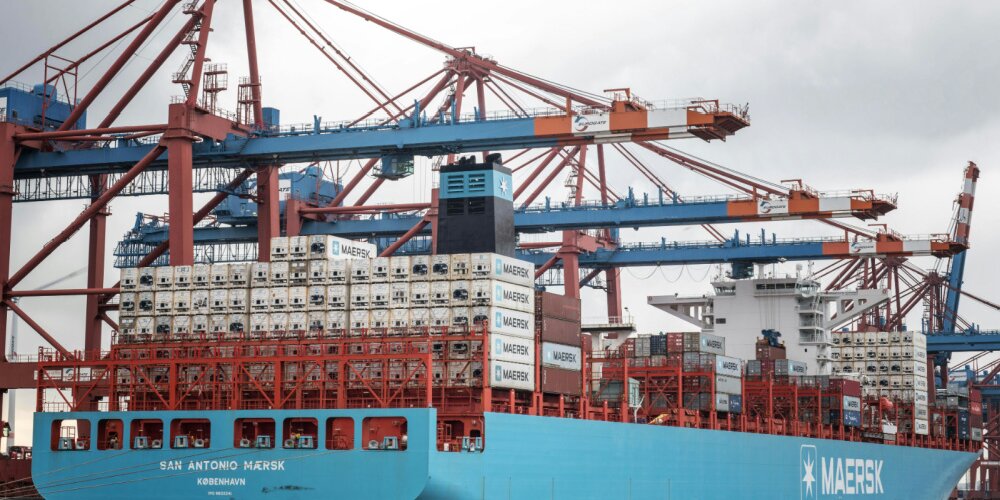Browse our services
Explore how Brookes Bell can help you
Find an expert
Meet our team, find and expert and connect
Contact us
Get in touch, we're here to help

Shipping giant Maersk has signed up to a study that will investigate the feasibility of creating a nuclear-powered container ship.
The study is being conducted by Lloyd’s Register in collaboration with CORE POWER and is taking the form of a ‘regulatory assessment study to conduct research on the regulatory feasibility and frameworks that would need to be established for a nuclear container ship using a fourth-generation reactor to undertake cargo operations’.
It is expected that the joint study will investigate the requirements for updated safety rules. This is in addition to the improved operational and regulatory understanding that is needed for the application of nuclear power in container shipping.
Commenting on the new study, Nick Brown, CEO of Lloyd’s Register said:
“The initiation of this joint study marks the beginning of an exciting journey towards unlocking the potential of nuclear power in the maritime industry, paving the way for emissions-free operations, more agile service networks and greater efficiency through the supply chain.
A multi-fuel pathway to decarbonising the maritime industry is crucial to ensuring we as an industry meet the IMO’s emission reduction targets and nuclear propulsion shows signs of playing a key role in this energy transition”.
Brown’s comments were echoed by Maersk’s head of fleet technology, Ole Graa Jakobsen:
“Since Maersk launched its energy transition strategy in 2018, we have continuously explored diverse low emission energy options for our assets. Nuclear power holds a number of challenges related to for example safety, waste management, and regulatory acceptance across regions, and so far, the downsides have clearly outweighed the benefits of the technology.
If these challenges can be addressed by development of the new so-called fourth-generation reactor designs, nuclear power could potentially mature into another possible decarbonisation pathway for the logistics industry 10 to 15 years in the future. Therefore, we continue to monitor and assess this technology, along with all other low emission solutions”.
This study follows a recent report from Lloyd’s Register - Fuel for Thought: Nuclear.
In the report, Lloyd’s Register assessed the opportunity presented by nuclear for commercial maritime. It places this in context of the already existing track record of nuclear propulsion in naval applications. A core focus of the report was the potential of small modular reactors - which are low-maintenance.
At the time, Mark Tipping, Power to X director at Lloyd’s Register, said of the report:
“Fuel for Thought: Nuclear represents one of the first easily accessible overviews on the use of nuclear power in shipping, combining information from a wide range of sources into one report tailored for commercial shipping and the wider maritime value chain.
Whilst its use in commercial shipping has been limited, by overcoming negative perceptions and a lack of investment levels, nuclear propulsion could provide immense value for the maritime sector in its decarbonisation journey, allowing for emissions-free vessels with longer life cycles which require minimal refuelling infrastructure, or in best case scenarios limit the need entirely”.
Whether you’re a small or large shipping line, Brookes Bell’s team of naval architects can help you explore innovative, efficient, cost-saving vessel designs.
Our range of naval architecture services include; marine design, software simulation, shipbuilding and in-service support, structural analysis and design, intact and damage stability assessments and more.
For more maritime industry insights, news and information, read the Brookes Bell News and Knowledge Hub…
Global Car Carrier Fleet to Grow by 40% | Report: 400+ Hydrogen Carriers Will Be Needed by 2050 | VLCCs Lead the Way in Scrubber Installations